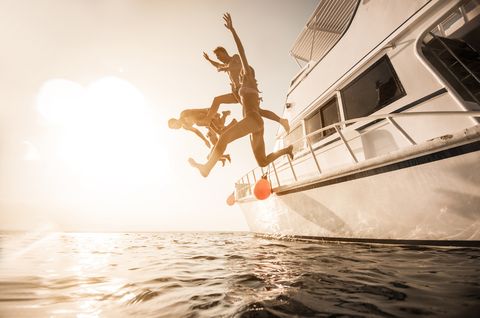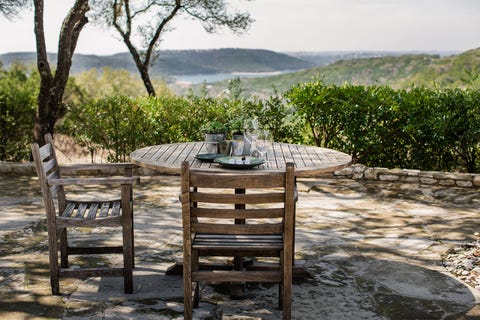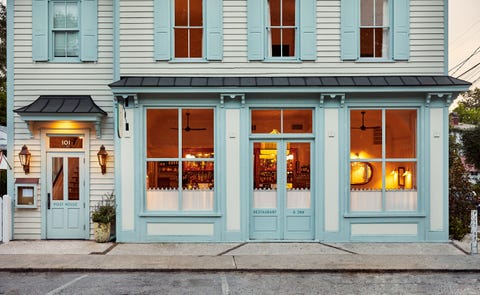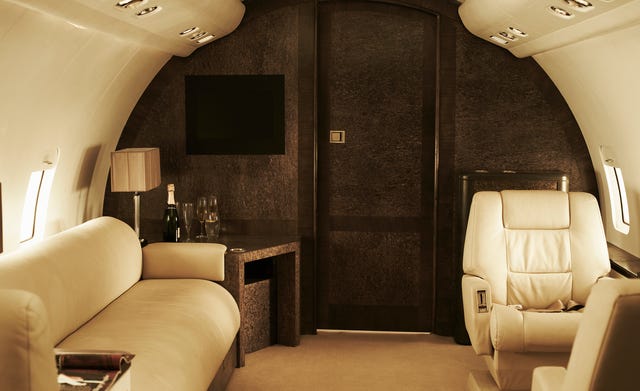Ultra-Exclusive Experiences

Katinka Friis, PR and press manager for Visit Denmark, says her team is noticing a growing interest in single-residence accommodations, which allows people to enjoy the getaways they’ve been dreaming of while being almost as socially distant, as if they were in their own home.
“Single-residency hotels are a part of an interesting tendency where travelers seek out more unique accommodation options,” Friis says. “Whether that is the luxury of the Darling or staying in a floating shelter in Copenhagen’s harbor, the single-residency accommodation adds an element of exclusivity to the travel experience. With places like the Darling, it can even give the feeling of living like a local in your own apartment.”
Our own team has noticed a significant increase in private and exclusive offerings from resorts around the world, be it opportunities for buy-outs, one-of-a kind private excursions, or promotions of stand-alone lodging options for those looking to enjoy a much-needed vacation while having the peace of mind that they are not exposing themselves to a large group of people who may not be abiding by the same preventative health measures. And we’re anticipating these exclusive experiences, destinations, and properties will only get hotter in 2021.
One of those properties is Oil Nut Bay in the British Virgin Islands. As the British territory’s borders open to visitors come December 1, the resort is preparing for a busy 2021 with a wide variety of experiences to make this already exclusive property even more accommodating. Oil Nut Bay was built with privacy in mind, making it an ideal post-coronavirus getaway with suites, villas, and even real-estate opportunities to ensure you are getting the exclusive vacation you’re looking for with all of the luxurious amenities of a resort. The resort now offers month-long villa stays, representatives to assist with remote learning, private educational programs for kids, and even a “Zoom Room” equipped with tablets for those looking to mix business with pleasure. Private chefs, charters, and excursions are also anticipated to be highly sought-after on property and at other luxury destinations next year.
Architecture and Design as a Path to Wellness

“You can’t be at your best if you’re not at your best mentally or physically. We’re putting a lot of emphasis in the way we design our spaces so people feel physically comfortable,” says Tom Ito, principal architect and founder of Gensler’s hospitality division. “It’s about getting back to basics—not just what guests want, but what they need, and they need to feel good and healthy at their core. We were taking these things for granted before 2020, and it’s good to get back to them.”
Ito says a property’s outdoor offerings are critical for ensuring guests feel healthy and find that deeper connection to nature, which boosts one’s well being. Ito says a recent survey conducted by his firm found the biggest hesitation people have about booking at a hotel or resort is a fear of being around other people, and he is seeing a lot of people prioritize these short-term spaces that are flexible and adaptable to keep certain areas feeling more exclusive, personal, and, ultimately, safe throughout a property. He says that while he hopes this will just be for the immediate future, creating these cozier spaces for dining, fitness, or lodging in a hotel will likely improve a guest’s experience during their stay and will help the industry evolve into the new year.
“An awareness of spaces that are spiritually engaging and private for those quiet, reflective moments where one can rejuvenate will likely be a priority for us,” Ito says. “We will still need social spaces, but that combination of both will best serve us for the future.
The Future Impact of Cleanliness on Design

“There is this notion of cleanliness impacting design right now, and it’s not just clean lines and simplicity—it’s also about fabrics, and there are whole new fabric lines coming out that are going to withstand the harsh cleaning protocols while being beautiful and nice to touch,” Ito says.
While he says there are no plans to redesign any of the firm’s impressive array of properties in expectation that things will turn to normal, they are thinking through approaches to design that emphasize health, safety, and rejuvenation for the body and mind.
“I think color is really important in designing spaces and looking at colors that make you feel good,” he says. “Every color has its own meaning, and we are certainly going to be looking at color and texture as a way to move forward in design. We have to also look at the increased awareness of being in a place that feels like your own and that you have control over, while still being a place to escape to, where you don’t have to touch a lot of things.”
Contactless check-in offerings, touchless door and faucet handles, along with new fabrics that can withstand heavy cleaning protocols, are all sure to be the way of the future in the hospitality industry.
“The importance of designing beautiful spaces will never go away, and beauty helps people feel their best,” Ito says. “We are always looking at that notion through the lens of design, as it has an incredible impact on how a person feels and what their experience is like, and now we are especially looking at that through that with prioritization of a guest’s perception of cleanliness.”
Supporting Local

“Our job was really to figure out how to design this property and create a place that’s at the center of the Old Village scene for the next 20 to 30 years,” says Ben. “Everyone has memories at this place, whether they hosted a baby shower or anniversary party or went to a wedding there, and it’s such a special place, so we wanted to be really careful about breathing new life into it without removing the building’s charm and history.”
The pair says they were thankful to have had some unexpected extra time to think through all the facets of what a safe opening would look like. They were able to double the amount of outdoor seating space and go out into the street, which has made Post House an instant favorite spot for locals to enjoy the coastal air and a delicious meal and satisfy their wanderlust by feeling like they are in a European city.
“Charleston is usually so inundated with tourists, so the biggest thing we have been focused on is our neighborhood and the locals, people who could walk down here and enjoy a meal, which has been a real blessing. It has been so great to connect with our regulars and neighbors, designing with them in mind. This is something you always want to do, but it gets hard here with how strong the tourist season is here almost year-round.”

Though Post House’s restaurant is currently not operating at full capacity, the couple feel it’s important to keep the layout of the restaurant unchanged, even setting the tables that will remain empty through the night to keep guests feeling like they are enjoying dinner on a Tuesday night instead of having the constant reminder that they are living in the middle of a pandemic. It’s those little touches that make an impact on their guest experience.
The Towills have also been using their new property as a way to give back to essential workers. On nights when the inn isn’t fully booked, they will give away a room to a local in the food and beverage industry who could use a night off and some extra care. It has all been a welcome reminder that we need to support each other locally and that a staycation or road trip may not have the allure and glamour of an international vacation, but they are just as essential for supporting our communities and finding true rest and rejuvenation for ourselves in these uncertain times. And no matter which countries are closed off to the U.S., we can rely on our local hospitality industry to give us the respite we need into the new year.
The Bottom Line
We asked all our insiders about if they think 2021 will really be “the year of travel,” or if it’s too soon to tell, and all of our experts felt optimistic about the year ahead, even if the first few months may require some extra patience.
“As Delta works to restart service in line with the lifting of travel restrictions, potential vaccine availability, and the gradual return of demand, customers will see more trans-Atlantic and trans-Pacific flights to top business and leisure destinations for the winter 2020 to 2021 and summer 2021 seasons,” says Maria Moraitakis, a corporate communications rep for Delta.
Marbach says regardless of our international travel options in 2021, or the lack thereof, one of the great things about this country is that people move around a lot, and they need to get back to doing so when it feels safe. He says he’s always amazed by people who haven’t done much domestic travel, as America has such a wide variety of terrain and attractions, from the Pacific Northwest and Las Vegas to South Florida’s great beach towns, and we need to take advantage of that.
“A lot of travel options will definitely depend on where we want to visit, and there are some countries, especially in Asia, that are incredibly safe, and hotels are doing really well over there right now,” says Ito. “Other countries are still on lockdown right now, but once that goes and the confidence is restored, people will be jumping on planes.”
Both Ito and Maraitakis note that airports and airplanes are actually some of the cleanest public spaces to be in these days, and recent studies have shown that flying presents a lower risk for COVID-19 than grocery shopping and dining out. Delta frequently updates a Where We’re Flying page to help educate travelers on where is currently open to travelers and when they will start opening flights back up in destinations that aren’t ready for vacationers quite yet.
While we must remain educated on the pandemic and what our ideal destinations are experiencing across the world, there is still hope for us to take an international vacation in 2021. For now, stay safe, follow the advice of health expert, and find ways to support your favorite local haunts—the special places that make your city and state uniquely its own. If you feel comfortable, book a few days away from your computer in a nearby locale that will offer some much needed R&R from this tumultuous year, because there’s no need to wait until the new year to take some time for ourselves to reflect, rest, and rejuvenate.
Access extras with CTS the magic wand appears here often.
Get Started
_________________________














